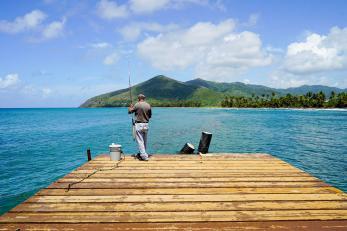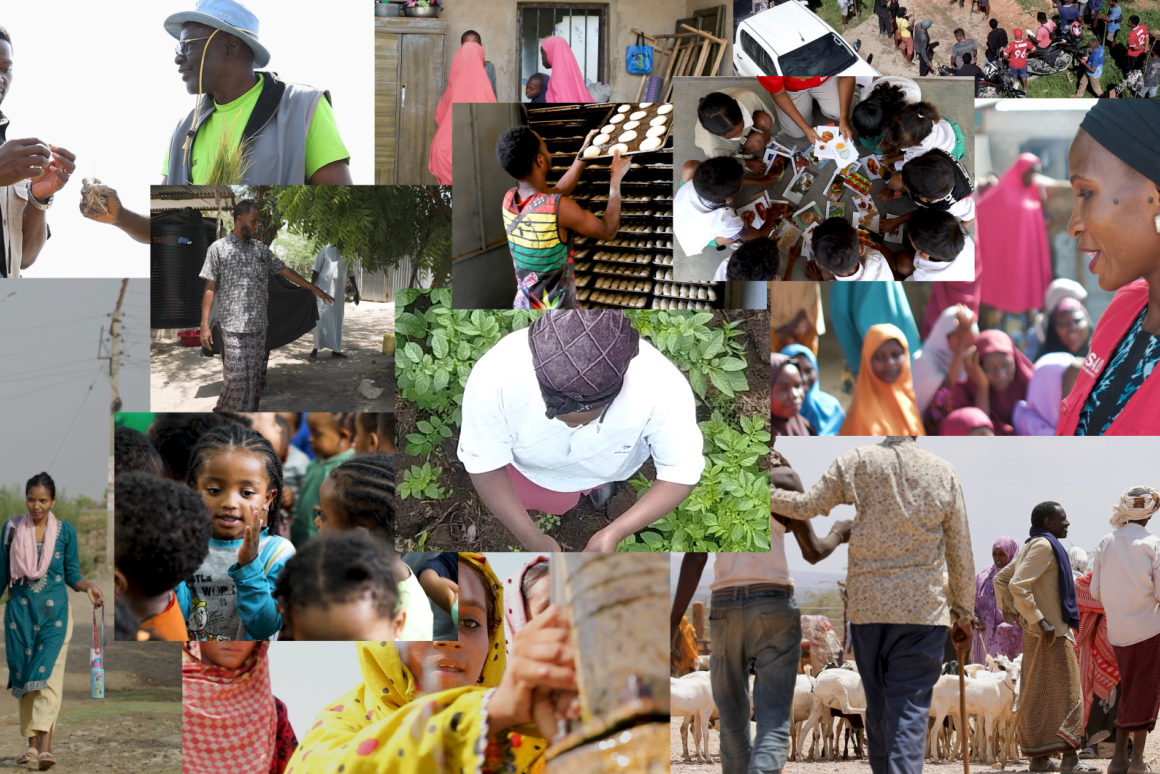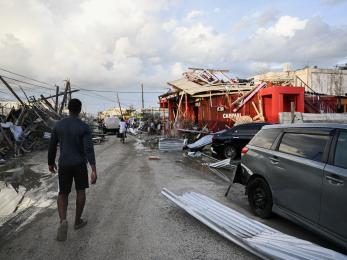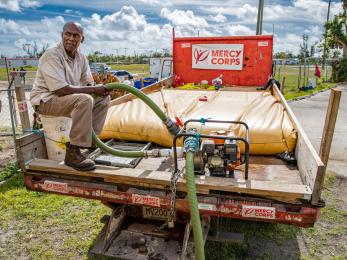Breadcrumb
The Caribbean

In 2021, Mercy Corps developed the Caribbean Resilience Initiative (CRI) to support islands and territories in the Caribbean region. Across Puerto Rico, the Bahamas, Haiti, Jamaica, Saint Kitts and Nevis, the U.S. Virgin Islands, and Saint Lucia—the region includes a combined population of over 6.8 million people. Based on established programming in Puerto Rico and the Bahamas, Mercy Corps reached more than 1,270,000 people in 2022.
The context
Climate change has led to increasingly powerful and dangerous weather patterns. Climate disasters destabilize economies, fuel conflict, and weaken social structures. While the islands of the Caribbean contribute less than 1% to global greenhouse gas emissions, they are among the most affected by climate change.
“The Caribbean is ground zero for the global climate emergency,” said UN Secretary-General António Guterres. Due to its geographic location and smaller size, countries in the Caribbean are at risk for rising sea levels, floods, coastal erosion, and longer dry seasons.
Our impact
The Caribbean Resilience Initiative works with local Mercy Corps staff and partner organizations to build resilience and adaptive approaches to the severe economic and environmental effects of climate change. Through partnerships with local communities, Mercy Corps aims to build long-term climate resilience and short-term recovery mechanisms to prepare for emergencies.

Locally led solutions strengthen livelihoods
Many communities in the Caribbean rely on the natural environment to support their families. Climate fragility and disasters degrade and destroy livelihoods across agriculture, fisheries, tourism, and hospitality industries. We work with organizations to provide capital and assistance for small businesses and young entrepreneurs to build more resilient livelihoods. Through investments in hard infrastructure, and soft skills like training in digital and financial literacy, small business operators are able to protect their assets. Mercy Corps works alongside these entrepreneurs and business owners to protect and restore the ecosystems they depend on.
Additionally, our teams in the Caribbean will be partnering with community organizations to support women in building resilient livelihoods. By adopting an intersectional approach focusing on gender equality, the program will work to address systemic barriers and socio-cultural attitudes that prevent women’s economic growth in the region by providing training, financing, and mentorship opportunities.
Building ‘Resilience Hubs’ and promoting emergency preparedness
In the face of a climate emergency, Mercy Corps works with local organizations to deliver necessities like food, cash, and water. It is imperative to reach people with the right resources at the right time. By partnering with community organizations, we are building Resilience Hubs, to provide reliable access to critical resources. Mercy Corps provides extensive instruction to community members who operate the Resilience Hubs—from first aid workshops and emergency drills, to trainings on water distribution and solar energy systems. Resilience Hubs may include a community garden, a connectivity center with internet access, disaster risk reduction resources, off-grid solar energy, emergency kits, and potable water.
In the aftermath of Hurricane Fiona in 2022, community members received immediate assistance from Resilience Hubs and local organizations so they could remain housed, fed, and safe with their families. By providing grants to community organizations, our partnership reached more than 15,000 people as they recovered after the hurricane.
To support the emergency response efforts, local organizations maintain access to fresh and local food, as well as more shelf-stable products. Partners in each country help to scale the storage and delivery of these resources. The hubs were equipped with storage of potable water for community access. Air-conditioning installations create cool rooms for vulnerable folks to escape extreme heat, and refrigeration capacity is used to keep medicines and food cool.
In Puerto Rico, Mercy Corps has supplied 17 Resilience Hubs with additional support like emergency kits and access to communication systems powered by solar energy—reaching about 2,000 people in the vicinity of the Hub. Mercy Corps began working in Puerto Rico in 2017, by providing emergency support in the wake of the devastating Category 4 Hurricane Maria. Our teams have been working alongside community leaders to build resilience so that when these kinds of shocks occur again, the most vulnerable Puerto Ricans have the skills and resources they need to cope and recover quicker.
Mercy Corps created a Hurricane Preparedness campaign in collaboration with a network of community-based organizations in the Caribbean. The campaigns raise awareness, increase social cohesion, and build networks for people to share information and resources. The campaign videos are shared across several platforms in advance of the hurricane season. The resources now also include a training and grants component for community-based organizations who are interested in assisting with emergency preparedness activities.


